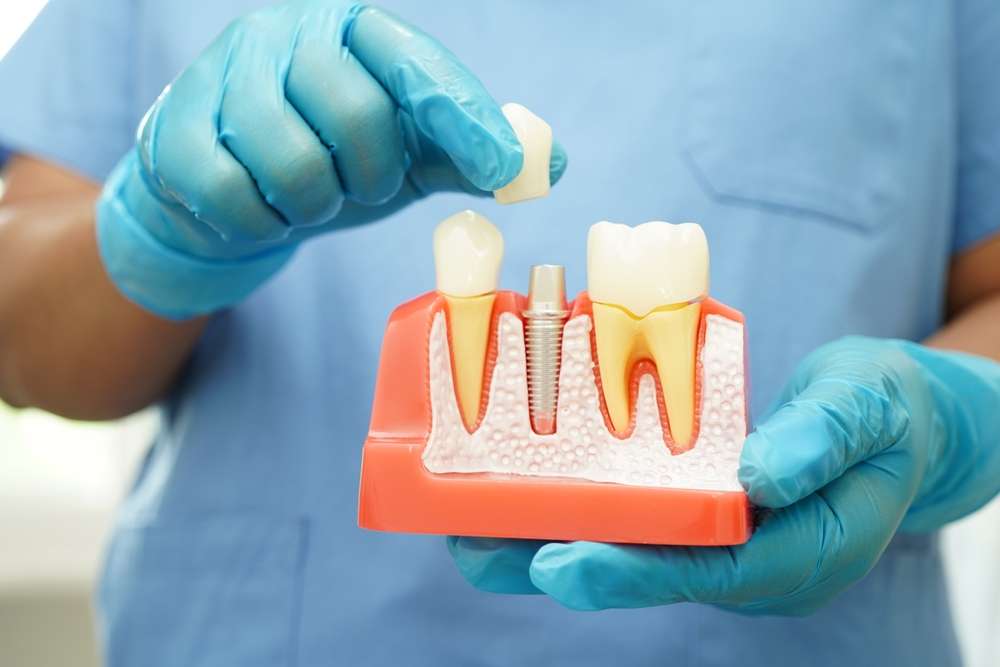Dental Implant Options and What to Consider Before Treatment
Dental implants have become one of the most effective and long-lasting solutions for replacing missing teeth. Unlike traditional dentures or bridges, dental implants are surgically placed into the jawbone, providing a stable foundation that mimics the function and appearance of natural teeth. This makes them a preferred option for many patients seeking a permanent tooth replacement solution. Whether you're considering tooth replacement options for yourself or a loved one, learning about the advantages of dental implants can help you make an informed and confident decision.

What are the different types of dental implants available?
Dental implants come in several varieties, each designed to address specific patient needs. The most common type is the endosteal implant, which is directly inserted into the jawbone. These implants typically use titanium screws and are suitable for most patients with healthy jawbones. For those with insufficient bone density, subperiosteal implants may be recommended. These are placed under the gum but on or above the jawbone. In some cases, mini dental implants, which are smaller in diameter, can be used for patients who cannot undergo more extensive implant surgery.
How does the dental implant procedure work?
The dental implant surgery process usually involves several stages spread over a few months. Initially, the implant dentist will evaluate your oral health and create a treatment plan. The first surgical step involves placing the implant into the jawbone. After this, a healing period of several months is required for osseointegration – the process where the implant fuses with the bone. Once healing is complete, an abutment is attached to the implant, which will hold the artificial tooth or crown. Finally, the custom-made crown is placed, completing the restoration.
What factors should be considered before getting dental implants?
Before deciding on dental implants, several factors need to be evaluated. Your overall health is crucial, as certain medical conditions can affect healing and the success of the implant. Sufficient bone density in the jaw is necessary to support the implant, though bone grafting can sometimes address this issue. Gum health is another important consideration, as periodontal disease can compromise implant success. Smoking habits should be discussed with your implant dentist, as smoking can significantly impact healing and long-term implant stability.
Who is an ideal candidate for dental implants?
Ideal candidates for dental implants are individuals in good general and oral health. They should have adequate bone in the jaw to hold the implants and healthy gum tissues free from periodontal disease. Patients must also be committed to good oral hygiene practices and regular dental visits, as these are crucial for the long-term success of dental implants. Age is not typically a limiting factor, but the patient should have completed facial growth. Those with certain chronic diseases, heavy smokers, or individuals who have had radiation therapy to the head/neck area may need to be evaluated on a case-by-case basis.
What are the benefits and risks of dental implant surgery?
Dental implants offer numerous benefits, including improved appearance, speech, and comfort compared to removable dentures. They allow for easier eating and better oral health since they don’t require reducing other teeth, as a tooth-supported bridge does. Implants are also very durable, often lasting many years with proper care. In the United States, dental implants have shown high success rates, with many patients reporting satisfaction with their improved quality of life.
However, like any surgical procedure, dental implant surgery carries some risks. These may include infection at the implant site, injury or damage to surrounding structures such as other teeth or blood vessels, nerve damage leading to pain or numbness, and sinus problems when implants are placed in the upper jaw. While these complications are rare, it’s essential to discuss all potential risks with your implant dentist before proceeding with treatment.
What is the typical cost of dental implants, and are they covered by insurance?
The cost of dental implants can vary significantly based on several factors, including the number of implants needed, the complexity of the case, and the geographic location of the dental practice. In the United States, a single dental implant can range from $3,000 to $4,500, including the implant, abutment, and crown. Full mouth reconstructions using dental implants can cost between $60,000 to $90,000.
| Procedure | Average Cost Range |
|---|---|
| Single Implant | $3,000 - $4,500 |
| Full Arch Implants (per arch) | $20,000 - $30,000 |
| Full Mouth Reconstruction | $60,000 - $90,000 |
Prices, rates, or cost estimates mentioned in this article are based on the latest available information but may change over time. Independent research is advised before making financial decisions.
Insurance coverage for dental implants has improved in recent years, but it’s still limited. Many dental insurance plans consider implants an elective procedure and may only cover a small portion of the cost. Some medical insurance plans may cover implants if they’re deemed medically necessary, such as after an accident or due to a congenital condition. It’s crucial to check with your insurance provider to understand your coverage options.
For those without insurance or with limited coverage, many dental practices offer financing options or payment plans to make implants more accessible. Some patients also consider dental tourism, traveling to countries where dental work is less expensive, though this comes with its own set of considerations and potential risks.
In conclusion, dental implants represent a significant advancement in tooth replacement technology, offering a durable and natural-looking solution for missing teeth. While they require careful consideration of various factors, including health status, bone density, and financial investment, many patients find the benefits well worth it. By understanding the different options available and what to expect from the process, you can make an informed decision about whether dental implants are the right choice for your oral health needs.
This article is for informational purposes only and should not be considered medical advice. Please consult a qualified healthcare professional for personalized guidance and treatment.




